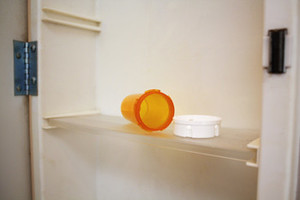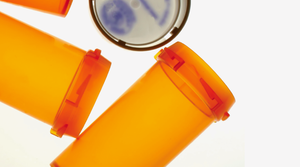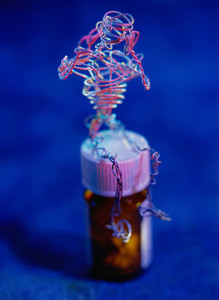Russia has been facing limited access to foreign pharmaceutical products for several years, but recent reports suggest drug shortages are reaching ‘crisis point’.
Russia has been facing increasingly limited access to foreign pharmaceutical products for several years, due to laws put in place to boost the domestic drug market.
Physicians, for example, are encouraged to prescribe domestically manufactured generic drugs and in 2018 a Moscow court was the first to grant a compulsory licence to a domestic manufacturer to make a generic blood cancer drug [1].
However, domestic supply of generics is limited and, in some cases, there are no domestically manufactured products available for life-threatening conditions. The quality of domestic products compared to foreign equivalents has also been questioned.
A leading Russian paediatric oncologist, Dr Alexei Maschan, told a Russian newspaper back in 2014 that legislation was restricting treatment options for Russian patients. Speaking of a bill stating that if two domestically produced drugs are available in a state medical institution, an imported option will not be considered, Dr Maschan said: ‘This is a refined cruelty towards patients and doctors, who will be forced to treat [patients] with absolutely untested medications’.
‘Lawmakers are thinking about a domestic manufacturer and not a domestic patient’, he added. ‘They have the facade of patriotism, but I think patriotism is to cure our patients with the best medications there are in the world’.
In 2015, the Ministry of Industry and Trade signed an additional resolution which restricted access to government procurements for foreign manufacturers, which led to many such companies leaving Russia.
In 2017, further procurement rules allowed the Ministry of Health to carry out drug tenders on behalf of regions, leading to three failed tenders in 2019. The shift to centralized procurement led to concern about shortages of HIV drugs in particular. One source estimated that the Health Ministry bought Lamivudine – an antiretroviral commonly known as 3TC – for 500,000 fewer patients than required.
Healthcare professionals are now warning that lives are at risk due to drug shortages and are requesting that the authorities allow them access to imported drug products that are currently unregistered for use in Russia. According to Ukranian news outlet Hromadske, drug shortages in Russia are ‘reaching a crisis point’.
Medical centres and public health organizations are reportedly stockpiling essential foreign medicines; however, these drugs are no longer available for purchase and supplies are limited.
In September 2019, the government did approve an order for the purchase of Frisium – a treatment for epilepsy and chronic pain in children – from abroad, however, healthcare professionals say there needs to be a broader change in the use of foreign medicines.
The Russian government has also recently approved legislation mandating ceiling prices for drugs [2]. All pharmaceutical companies wishing to sell a product on the essential drug list in Russia must now go through a one-time mandatory ceiling price adjustment. Failure to do so will debar the drug from sale.
References
1. GaBI Online - Generics and Biosimilars Initiative. Russian court approves first compulsory licence [www.gabionline.net]. Mol, Belgium: Pro Pharma Communications International; [cited 2020 Feb 21]. Available from: www.gabionline.net/Policies-Legislation/Russian-court-approves-first-compulsory-licence
2. GaBI Online - Generics and Biosimilars Initiative. New pricing system for drugs in Russia [www.gabionline.net]. Mol, Belgium: Pro Pharma Communications International; [cited 2020 Feb 21]. Available from: www.gabionline.net/Policies-Legislation/New-pricing-system-for-drugs-in-Russia
Related articles
Non-originator biologicals approved in Russia
Russian approval for non-originator dornase alfa
Permission granted to reproduce for personal and non-commercial use only. All other reproduction, copy or reprinting of all or part of any ‘Content’ found on this website is strictly prohibited without the prior consent of the publisher. Contact the publisher to obtain permission before redistributing.
Copyright – Unless otherwise stated all contents of this website are © 2020 Pro Pharma Communications International. All Rights Reserved.
Source: Hromadske International








 0
0











Post your comment